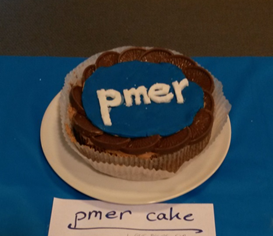Eating the cake: savouring a successful change process

Every successful recipe has been tweaked, and global system change programmes are no different. In the second of our blog series on WaterAid’s reworking of planning, monitoring, evaluation and reporting procedures, Arjen Naafs, Technical Advisor for South Asia, describes the tweaks that ensured success.
At Water Aid we love cake, and ever since Nadiya Hussain swept up the Great British Bake Off, it is logical to think about baking when going to WaterAid Bangladesh. Thus, I recently travelled to Dhaka to savour a cake ̶ one that has been baking a long time.
The Hunger
WaterAid’s growth, particularly over the past decade, has been impressive – budgets are up, more people have been reached and we are working with more partners, projects and countries than ever. Growth, however, brings many challenges, of which value for money and efficiency are often mentioned and scrutinised. As WaterAid CEO Tim Wainwright says, “We don’t have growth for the growth’s sake”. The systems and processes we use have been growing and multiplying and are often country-specific. For a long time, WaterAid countries wanted an online platform that would enable them to efficiently manage projects and programmes, one that included not only the information management system, but also the processes and ways of working. The appetite for such a single ‘system’ increased until, a couple of years ago, we became so hungry we started looking for a recipe.
The first we found, arguably driven by hunger and eagerness, was a great package and was holding up a tantalising picture. But on adding up all the ingredients it proved to be shockingly expense (> £1 million) and was wisely discarded. We went back to the cookbook and also started looking into the kitchens of other organisations. They all said there was one essential ‘cooking secret’: don’t focus on the utensils (software), but focus on the essential ingredient – people – and regard it as a behaviour change process.
Now, as a WASH organisation this is home ground for us, having behaviour change at the core of our strategy to drive hygiene improvements. We want to be seen as a sector change agent, holding governments to account and to improve sector efficiency. But as we all know, it is easy to tell others to change and much more difficult to 'be the change you want to see’.
The Recipe
Thus, in 2014 we started cooking again using a recipe that is coined PMER (planning, monitoring, evaluation and reporting – for more information read our blog). It basically has four main elements – an accountability framework, core procedures, the system and capacity building. The framework explains why (in nine accountability steps), the procedures explain how – who does what, when (including the minimum expectations and using a RACI [responsible, accountable, consulted and informed] approach). To build the system and capacities we started gathering the various ingredients – getting people on board, starting to do training and capacity building, and choosing the utensils to use.
The first cake we baked as pilot in one of our regions showed we had been aiming for gluttony (we wanted it to have everything). It had too many ingredients (indicators), too much sweetness (data), required too much mixing (heavy reporting demands) and ended up crumbling before tasting (too complicated).
We refined the pilot recipe and rolled out an improvement. The second cake is turning into a much better one, and for the last weeks we have been enjoying whiffs of sweet and promising smells coming from Bangladesh in particular, which has been a forerunner in PMER.
The Result
Amina Mahbub is WaterAid’s Monitoring and Evaluation (M&E) Expert in Bangladesh. She described what has been going on: “People have changed their way of working – now project people own much more the progress – not M&E who traditionally provided this”. There is now a ‘single source’ for information and data – which helps learning and adapting, and increases efficiency and accountability. Or, as Anadita Hridita, Project Officer, says “We feel much more empowered”. It is not without irony that I note that these last words are the very ones we often hear from communities we work with.
This story of how we make cake at WaterAid (see similar blog here), shows that WaterAid is not perfect. Like any organisation, we have operational and internal issues, but we try different recipes and ingredients until we get it right. There are always challenges –some labelled PMER as “a formality from the UK” or “an ‘event’, not a process”, but seeing this PMER cake being baked has demonstrated to me, that yes, we can change our own behaviour, become more accountable and work towards better efficiency. And with that knowledge we can continue supporting governments to try to find the right recipe, the correct good mix of ingredients and the right utensils to strengthen the WASH sector.




